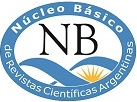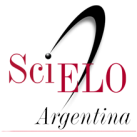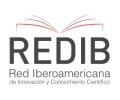Principles and Values
Our principles and values
For the Technology and Science Magazine (RTyC), edited by the Secretary of Science and Technology of the National Technological University, is vital to ensure a transparent, clear and fair editorial process.
This document outlines the principles of good practices and values that are included in our magazine.
The RTyC (ISSN 1666-6933) is committed to the recognition of the responsibilities, rights and duties explained by the Publications Ethics Committee (COPE), a global non-profit organization that aims to support authors and publishers to achieve high standards in editorial ethics. This promotes compliance with scientific rigor and transparency in the publications.
Research Integrity
All research published in the RTyC is expected to comply with the following basic principles:
- Honesty and transparency at all research stages
- Recognition to research participants.
- Recognition of external authors through article quotation.
- Excellence in research.
These basic principles are the pillar of our ethical code.
Editorial Process
The RTyC has a clear and explicit policy regarding the editorial process: It is independent, not compromised by political or economic influences and avoids any type of conflict of interests. The members of the editorial committee are devoted to a transparent and honest process guided by our ethical code which outlines the responsibilities of the magazine and the editors in the editorial process.
Periodicity
Periodicity is one of the main requirements that RTyC is committee with. We maintain our frequency of publications, understanding that this is essential for the international standards of scientific publications.
Creative Commons Licenses
The RTyC is ruled by the Creative Commons Attribution-NonCommercial 4.0 International license, informing readers of the uses, permits and restrictions of the articles published in the magazine. The licenses are not only published on the magazine`s site but are also reflected in the articles´ final publication format.
Peer Reviewed
The review reflects the quality and excellence of the publications. It is essential, for the RTyC, to have the highest standards´ review.
The magazine offers advice and training to conduct a rigorous and effective review.
A review based on the principles of academic honesty is intended and encouraged to be fair and impartial.
The magazine works with the members of the editorial committee to investigate in case of suspected manipulations or irregularities in the peer review process.
The RTyC guarantees to protect the participants’ confidentiality in the editorial process.
The magazine subscribes to COPE´s ethical standards for reviewers, which are included in our code of ethics.
Copyright
Publication´s authorship should apply to all areas of research: Contribution for the creation of the article, acquisition, analysis of the data, writing, self-review of the contents and final approval of the published version. The corresponding author acts on behalf of all co-authors. The authors will sign a note authorizing the magazine to publish their unpublished work and accept the responsibilities for its content.
Adaptations for publication / corrections
The RTyC modifies the reviewed and accepted articles according with the magazine´s publication norms/standards, redesigning the content without modifying any fundamental aspect of the article. The Author´s final authorization is required to approve the article´s final presentation.
In the event that the authors state that there are substantive errors in their publications, the journal will issue an an statement of erratum.
Recognition
The RTyC encourages scientific dissemination and authors´ recognition through citation of original source and references in published articles.
All publications have an international citation system. Researchers who need to cite an article can do it by any standards
The RTyC is part of Crossref. Each published article is assigned with a DOI (Digital Object Identifier), which allow readers to access the research source.
Plagiarism
Plagiarism is presenting someone else’s work or ideas as your own, with or without their consent, by incorporating it into your work without full acknowledgement. All published and unpublished material, whether in manuscript, printed or electronic form, is covered under this definition. Plagiarism may be intentional or reckless, or unintentional. Under the regulations for examinations, intentional or reckless plagiarism is a disciplinary offence, according to the dictionary definition of Oxford University. This is a violation of academic principles and the scientific community. The RTyC complies with to the basic principles of the declaration on the intellectual property of UNESCO. In order to protect the authors of this type of irregularities, the RTyC, seeks to perform a search through free software (www.plagius.com/e) and manual search in different electronic libraries. If a high possibility of plagiarism is confirmed, an interaction will be carried out with the author of the submission, so that it can be duly clarified. In case of not having an answer from the involved author, communication will be established with the institution, to which the author belongs, in order to carry out an investigation of the case.
Self plagiarism
Self plagiarism is presented when an author republishes his article without significant changes or publishing it in different languages, without any reference to the original article, in order to present it in different publications. The RTyC does not approve this behavior nor will it accept that the authors carry out this type of action. Articles that complete or are part of the same research will not be considered self-plagiarism and the author so declares it by citing the source.
Censorship and discrimination
The RTyC does not conduct any type of censorship in scientific investigations that may be controversial. Authors of any nationality and race can publish in the magazine without restrictions of any kind, no priority is given to any article or author over another. The order of published works is limited to the time of completion of the editing stages.
Financing
The RTyC receives economic and human resources from the National Technological University, which operates with Argentine public funds.
Publicity
The RTyC does not carry out publicity of any kind, nor political or religious propaganda
Marketing, payment and subscription
The RTyC is part of the Budapest Open Access Initiative specifically in the so-called diamond, which shows free and equal access to scientific publications. This is why the magazine does not charge for subscriptions, access to content or articles ‘publication.
The members of the editorial committee perform their work ad honorem. For this reason, the published articles in the magazine have high evaluation standards, because the committee does not have any economic pressure, nor demands at the time of publication.
Environment
The RTyC adheres to the principles of the United Nations Declaration on the Human Environment held on June 16, 1972 in Stockholm and reaffirmed in the Rio Declaration on Environment in 1992. The RTyC requires that all research presented comply with these values and principles.
Practice in animals and humans
The RTyC requires that these practices must be approved by the ethics committees relevant to the case and should conform to international ethical and legal standards for research. The authors are expected to present in the publication the ethical standards employed in their research.
Contact
For any questions about editorial ethics, publication formats, editorial process or general doubts about publishing in the journal, contact the technical editor rtyc@utn.edu.ar, all inquiries will be handled in a personalized and discreet manner.


















